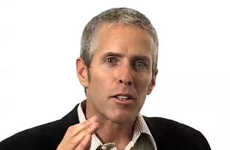
Robin Nagle Keynotes
Robin Nagle's speeches focus on her anthropological research on waste. She has worked as a resident...

Need Inspiration?
Get inspired by 4,000+ keynote speaker videos & our founder, a top keynote speaker on innovation.
Robin Nagle’s Systems of Sanitation Speech Examines NYC’s Lab
Vasiliki Marapas — November 6, 2013 — Keynote Trends
References: youtu.be
Robin Nagle’s system of sanitation speech was born out of a research project she began with the NYC Department of Sanitation in order to answer the complex question: who cleans up after us? Nagle found that simply accompanying the sanitation crews around the city was insufficient, so she took on the job herself.
Nagle described the job, considered one of the ten most dangerous occupations in the country, as a “remarkable privilege and amazing education.” She discovered the relentless essence of trash, which acts as a “force of nature unto itself” and personally experienced the stigma and invisibility of donning a sanitation worker uniform.
Ultimately, Nagle noted that sanitation workers are the number one guardians of public health, keeping disease and contamination in check; that sanitation affects the economical flow (we can’t produce if we don’t dispose of the old;) and that sanitation affects our quotidian velocity (how fast we’re used to moving.) Nagle urges us to acknowledge our sanitation workers in order to properly create and foster a sustainable and humane environment.
Nagle described the job, considered one of the ten most dangerous occupations in the country, as a “remarkable privilege and amazing education.” She discovered the relentless essence of trash, which acts as a “force of nature unto itself” and personally experienced the stigma and invisibility of donning a sanitation worker uniform.
Ultimately, Nagle noted that sanitation workers are the number one guardians of public health, keeping disease and contamination in check; that sanitation affects the economical flow (we can’t produce if we don’t dispose of the old;) and that sanitation affects our quotidian velocity (how fast we’re used to moving.) Nagle urges us to acknowledge our sanitation workers in order to properly create and foster a sustainable and humane environment.
5.4
Score
Popularity
Activity
Freshness
















